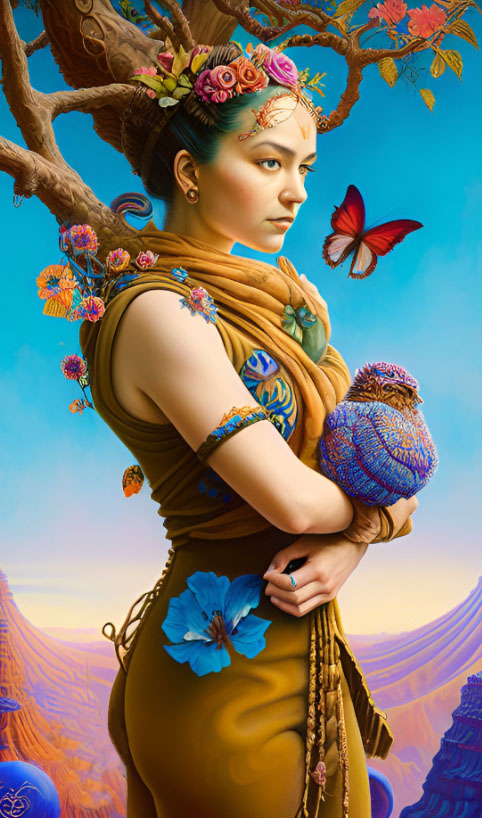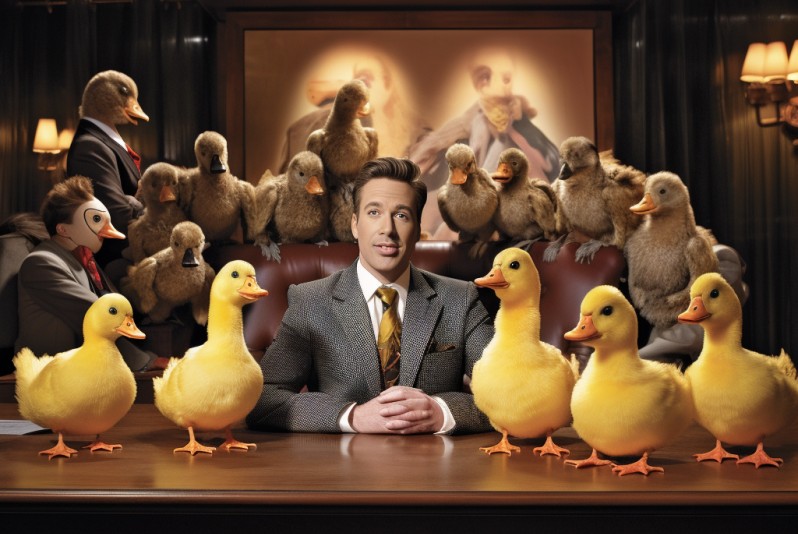Ironically, despite being “Artificial Intelligence,” ChatGPT is infinitely more natural in how it provides the information you want, and… it is oddly deeply satisfying.
Do I really miss hitting the top of the TV to get those infuriating horizontal lines to stop scrolling down my screen? No. Do I really miss having to get up off the couch to change the TV channel to watch the show that is on the other one of my three available channels broadcast over the analog airwaves? Not really. But ask me if I miss falling asleep to Johnny Carson on my old 12″ black and white TV, and I’ll probably say yes.
Johnny had a special gift for timing and delivery, making even the simplest jokes land with great impact, and he just had a unique talent for making his guests feel at ease, which in turn I think made me feel that sense of ease. To me, there never has been anyone quite like him since.
In case you cannot tell by now, I can literally wax poetic on the past with the best of them. I call this crippling nostalgia, a place I dwell often to take a break from the seemingly crazy world we live in today.
The word nostalgia, according to its Greek origins, translates basically to acute homesickness, and although the technical definition describes it as that yearning to return to one’s place of origin that brings about emotional suffering, it has now come to mean looking back to the past with all sorts of warm and fuzzy feelings.
How that definition changed over the years, from pointing to the pain experienced in looking back, to now the pleasure of it, we may never know. All I know now is that lately I have been having an even newer sensation than my usual crippling kind: nostalgia for the future—now that is bending some serious time and space for that poor word.
Allow me to explain what I mean by nostalgia for the future. In a short amount of time, there will be those who will say, “I remember when you had to search for something on Google (gasp) and then wade through umpteen hundred thousand records to find the one website that had the information you were looking for… but only after clicking through a few sites to find the one that really had the content you were hoping to find.”
Sure, Google is fast at indexing (for instance, I just googled the word nostalgia, and it came back with 366,000,000 records in .39 seconds — whoa), but to really find the information I was looking for took some human effort after the results were served up. And (insert rant here) heaven forbid you are looking for actual information instead of products or services which Google would prefer to serve up to your eyes, as they need to monetize their free indexing service… and boring informational sites do not pay well.
Fast forward (or backward?) to June 2020 and on the scene came out ChatGPT. Although a time I think we’d all like to forget (thanks COVID-19), something else snuck in and took over our global world at that time, albeit far more quietly. It was called ChatGPT and self-describes itself as “a model that utilizes deep learning techniques to generate human-like responses and provide conversational interactions with users.”
Now even I, who have a love for complicated words and complex sentences (and who have worked with programming languages enough to boast that I can copy and paste them), have no clue what that definition really means. And if I do not know what it really means, I’m going to take a wild guess and assume there are others who are like… what? A chat toy, that’s nice. I have better things to do with my life than having conversations with a bot.
But do you really? What if I explained it like this: You can now bypass Google almost completely when looking for information on the web.
As mentioned in my example above, if you google the word nostalgia, you will spend your precious time wading through all the records and spend even more energy previewing sites to find the one with the best information.
Now, ask ChatGPT the same question, and you will receive an robust and informative reply typed out before your very eyes. You can then engage in an ongoing conversation style with the chat to effectively draw out additional information in real time.
Ironically, despite being “Artificial Intelligence,” it is infinitely more natural in how it provides the information you want, and… it is oddly deeply satisfying.
ChatGPT is not the only AI tool out there, but it’s accessible and, quite honestly, fun. Not only can you research information, but you can also get creative. It’s all in the prompts, or the questions you ask it, and it’s only limited by your imagination in terms of what you can ask it to do for you.
So, of course, in a fit of crippling nostalgia, I asked ChatGPT to write a funny quote in the voice of Johnny Carson about AI, and it produced the following:
“Folks, I’ve seen some impressive things in my time, but this AI stuff takes the cake! It’s like having a robot assistant who can predict your next move before you even think of it. I mean, talk about mind-reading technology! But here’s the kicker: no matter how smart these machines get, they still can’t help you find your missing socks or figure out why your remote control always goes missing. So, AI, if you’re really that intelligent, find me a solution to the eternal mystery of the disappearing TV remote, and we’ll talk”.
“I bid you all a heartfelt goodnight.” –Johnny Carson

About the Author:
Alesia Lloyd, Co-Owner of DuckByte, is deeply passionate about how consciousness, language, and culture intersect with technology. She sees how language shapes and transforms our interactions as a society and is keen to promote this to foster a sense of unity in the human experience.
About AI: Alesia strongly supports maintaining the human element in the world of AI. While she believes in using these tools not only for their intended purposes but also as a means to explore our own horizons of consciousness, she warns against becoming too entangled in their seductive promises, which can sometimes fall short of their allure.
Alesia got her start in journalism and professional writing at Maharishi University of Management in 1997 and quickly jumped ship to focus on the frontier of online content and web development. With over 25 years of experience, she enjoys bringing her expertise in writing and visual layout skills to the website design market. She finds great satisfaction using her talents to develop beautiful custom websites for inspired and inspiring clients, whilst championing organic and authentic human-centric SEO content.

